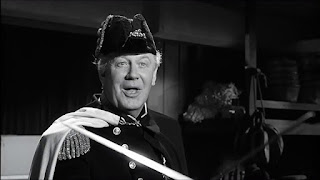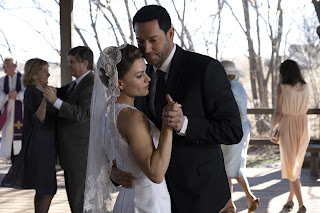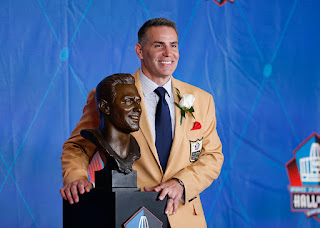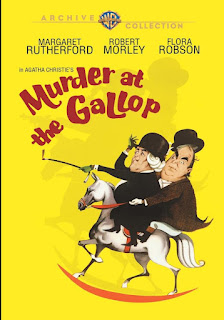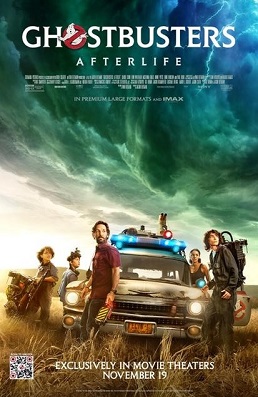SPIDER-MAN: NO WAY HOME
Author's Note: This review will have spoilers. If that bothers you, I'll use the words a high-ranking non-furloughed Administrator told me when I told her that many formerly furloughed staff were still traumatized over their experience and near layoff.
"They really should just get over it".
I too have affection for Spidey, though that affection has never extended to Tony Stark, Jr. The Marvel Cinematic Universe to my mind has made Peter Parker into a total blithering idiot, forever going on about "THIS REALLY OLD MOVIE" that is "old" because it was released before he was born. I have long held that the MCU is the world's longest and most expensive soap opera. Spider-Man: No Way Home is the Christmas/anniversary special to said soap opera.
Picking up right where Far From Home left off, Peter Parker (Tom Holland) has been outed as Spider-Man by The Daily Bugle website impresario J. Jonah Jameson (J.K. Simmons). This news does not surprise his lady friend Michelle Jones-Watson (Zendaya) or Ned (Jacob Batalon) the Patrick Star to Peter's SpongeBob SquarePants. The havoc this causes to not just their lives but those of Peter's Aunt May (Marisa Tomei) and her beau Harold "Happy" Hogan (Jon Favreau) is so great that Peter, MJ and Ned are rejected by MIT, which doesn't want the negative publicity.
At this point I am dead-serious in asking how it is remotely possible that Peter, Ned, MJ or their frenemy Flash (Tony Revolori) could possibly be MIT candidates. They are all idiots, total absolute idiots. I find the idea of multiverses invading each other more believable than the idea that any of them possibly being accepted into MIT (with Flash actually getting in).
After all, Peter is so intelligent that he, rather than file an appeal to MIT, decides to use magic.
Who else to consult on this matter than Doctor Stephen Strange (Benedict Cumberbatch)? Peter knows "Sir" can whip up a spell to have everyone forget Peter is Spider-Man. Typical of Zoomers however, Peter immediately begins making demands on who can remember, causing Strange to lose focus and control of the spell. That little bit of interference causes multiverses where others know that Peter Parker is Spider-Man to enter this realm.Thus, Peter Parker is hunted down by the Green Goblin (Willem Dafoe), Doc Ock (Alfred Molina) and The Sandman (Thomas Haden Church) from the Sam Raimi Spider-Man films, as well as Electro (Jamie Foxx) and The Lizard (Rhys Ifans) from the Marc Webb Amazing Spider-Man films. Everyone is confused, but despite Strange's warning that the villains cannot be changed, the MCU Spidey thinks he can change them.
That, however, leads to tragic circumstances, but do not lose hope. If the villains could have been brought from one universe to another, what is to say that those universes Peter Parkers could not have slipped through. Thus, both Spider-Man II (Tobey Maguire) and Spider-Man III (Andrew Garfield) join forces to save the worlds, though not without great sacrifices and surprise help. With things mostly restored, Peter now strikes out on his own, rebuilding his life as your Friendly Neighborhood Spider-Man.
As I watched Spider-Man: No Way Home, I came to the realization that the film is essentially the MCU version of the Doctor Who twentieth anniversary special The Five Doctors. In that special, two former Doctor Who leads joined the then-current actor playing the title role (along with a doppelganger to play the role in place of the actor who had passed away by then) as various versions of The Doctor to fight against new and old enemies. I liked The Five Doctors, a nice nostalgic trip to celebrate the television show.
As such, I understand the enjoyment many got from No Way Home. It gave fans a chance to look back at a franchise that has had three leads and a myriad of villains, some of which impacted their fandom and youths (though I doubt The Amazing Spider-Man films are as loved as the Raimi and/or MCU versions). However, nostalgia goes only so far with me, and No Way Home is like the previous MCU Spider-Man films: big on the dumb.
I have so many questions revolving around the logic in No Way Home apart from the "these kids could get into MIT"? That I will leave for another time, but for now I think that the film gives audiences what they want. I cannot fault them for that, but I can say that it does not convert me to thinking it good, let alone a Best Picture contender.
No Way Home does one thing that impressed me tremendously. The Tom Hardy cameo allows for Sony and Disney to have their cake and eat it too. His Eddie Brock/Venom manages to pop in and out in such a way as to introduce a new villain for the next MCU Spider-Man film while keeping the Venom franchise safely tucked away from this particular arachnid.At this point I would like to point out that Tom Holland was a month away from turning six years old and was sixteen years old when Spider-Man and The Amazing Spider-Man respectively were released. Tobey Maguire, I also note, is 21 years older than Holland, thus making him old enough to be Holland's father (Garfield is a mere 13 years older). To be fair neither Maguire nor Garfield looks their respective ages, but one should give credit where it is due. Both easily slip back into their roles to where it is believable that they could still be Spider-Men in their own universes. Holland too goes back into his "Peter as near-total moron", though here he does have moments of maturity in how his actions affect others.
Cumberbatch is fun as the less serious Strange, looking on the antics of his "Scooby-Doo" gang with a mix of irritation and puzzlement. He can be serious when the need arises, but given he was shunted off into the multiverse for long stretches he does not play a major part in No Way Home.
As a side note, both No Way Home and the post-credit scenes play out like trailers for Doctor Strange in the Multiverse of Madness. Make of that what you will.
The best performances come from two of the three Raimi Spider-Man villains. Molina, with some de-aging effects, brings back the conflicted Doctor Otto Octavius: evil yet able to do the right thing. Dafoe's Norman Osborne continues to be the standard to which all Spider-Man villains are held to. He is equally adept at being the confused, frightened man and the gleefully villainous Green Goblin.
Given that we have so many villains, the others are lost in the shuffle. While Foxx's Electro is the third major villain, he is given little to do. His statement that he thought Spider-Man III was black and that in some other universe there is a black Spider-Man was a nice hint for Miles Morales, though if No Way Home had really wanted to be bold, it would have given us a live-action version to match the brilliant Spider-Man: Into the Multiverse.
Either that or Spider-Ham.
Ifans and Church were essentially voice-actors, playing little to no role in No Way Home. Tomei and Favreau were equally poorly served. Zendaya continued the same sarcastic, scowling MJ, though little moments where she appeared to be more than a quip-spouting machine creeped up.
Saying one did not like Spider-Man: No Way Home seems almost like saying one does not like puppies or Mom's apple pie. It is not terrible, but it is little more than fan service. I cannot fault it for that, but I cannot celebrate that either.
Next Marvel Cinematic Universe Film: Doctor Strange in the Multiverse of Madness




















